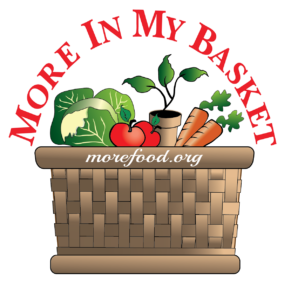Cooperative Extension Program Helps With Food Insecurity
go.ncsu.edu/readext?812144
en Español / em Português
El inglés es el idioma de control de esta página. En la medida en que haya algún conflicto entre la traducción al inglés y la traducción, el inglés prevalece.
Al hacer clic en el enlace de traducción se activa un servicio de traducción gratuito para convertir la página al español. Al igual que con cualquier traducción por Internet, la conversión no es sensible al contexto y puede que no traduzca el texto en su significado original. NC State Extension no garantiza la exactitud del texto traducido. Por favor, tenga en cuenta que algunas aplicaciones y/o servicios pueden no funcionar como se espera cuando se traducen.
Português
Inglês é o idioma de controle desta página. Na medida que haja algum conflito entre o texto original em Inglês e a tradução, o Inglês prevalece.
Ao clicar no link de tradução, um serviço gratuito de tradução será ativado para converter a página para o Português. Como em qualquer tradução pela internet, a conversão não é sensivel ao contexto e pode não ocorrer a tradução para o significado orginal. O serviço de Extensão da Carolina do Norte (NC State Extension) não garante a exatidão do texto traduzido. Por favor, observe que algumas funções ou serviços podem não funcionar como esperado após a tradução.
English
English is the controlling language of this page. To the extent there is any conflict between the English text and the translation, English controls.
Clicking on the translation link activates a free translation service to convert the page to Spanish. As with any Internet translation, the conversion is not context-sensitive and may not translate the text to its original meaning. NC State Extension does not guarantee the accuracy of the translated text. Please note that some applications and/or services may not function as expected when translated.
Collapse ▲ Hunger affects every community in North Carolina. Within Alexander County, 14% of the total population suffer from food insecurity (County Health Rankings). Food Insecurity can be defined in two ways, low food security indicates reports of reduced quality, variety, or desirability of diet; little or no indication of reduced food intake. Very low food security is defined as reports of multiple indications of disrupted eating patterns and reduced food intake (USDA). Children and older adults have the greatest risk of being hungry. When people lack access to adequate and healthy foods, their health and well-being suffers. Children are unable to concentrate on learning, mental clarity is reduced, and people of all ages are more likely to be sick. Food insecurity can be worsened by other social factors including education level, low financial security, and insufficient access to housing, and healthcare.
Hunger affects every community in North Carolina. Within Alexander County, 14% of the total population suffer from food insecurity (County Health Rankings). Food Insecurity can be defined in two ways, low food security indicates reports of reduced quality, variety, or desirability of diet; little or no indication of reduced food intake. Very low food security is defined as reports of multiple indications of disrupted eating patterns and reduced food intake (USDA). Children and older adults have the greatest risk of being hungry. When people lack access to adequate and healthy foods, their health and well-being suffers. Children are unable to concentrate on learning, mental clarity is reduced, and people of all ages are more likely to be sick. Food insecurity can be worsened by other social factors including education level, low financial security, and insufficient access to housing, and healthcare.
There are several programs that help people access food. The largest federal program is the Supplemental Nutrition Assistance Program or SNAP (formerly Food Stamps). In North Carolina the program is called Food and Nutrition Services (FNS) and operates through the Department of Health and Human Services. SNAP benefits are accepted at grocery stores, convenience stores, select Farmers’ Markets, discount stores, and some membership warehouses.
Large local retailers have begun accepting the Electronic Benefits Transfer (EBT card) online. Some of the larger retailers include Aldi, Amazon, BJ’s, Carlie C’s, Food Lion, Publix, and Walmart.
Many households depend on the SNAP monthly food supplement to help expand their grocery budget and purchase healthier foods. N.C. Cooperative Extension of Alexander County offers a program called More In My Basket (MIMB), which provides education about the SNAP/FNS program. Through More In My Basket, participants learn if they are likely eligible for SNAP/FNS, how SNAP/FNS can expand their food budget, and receive individualized assistance with completing an application. MIMB strives to reach people who may benefit from SNAP through increasing SNAP information dissemination via social media, websites, newsletters, newspapers, radio, and other online platforms.
More In My Basket was developed at North Carolina State University by Dr. Carolyn Bird, Professor and Family Resource Management Specialist. “People with limited resources must make tough decisions about how to spend their money. With the pandemic, formerly food-secure families are struggling to meet their nutrition needs. They may forego medical care to put food on the table. They may skip meals to pay utility bills. Through More In My Basket, we help connect more people to SNAP/FNS, allowing them to better manage their financial resources. FNS is not only good for families, but it helps the community as well. Research shows that for every $5 of FNS spent, there is a $9 impact in the community.”
MIMB staff reach the community to screen for SNAP eligibility, assist with SNAP application completion, and bridge the gap between community and local Department of Social Services. Assistance is provided through private, individual phone conversations. For more information on More in My Baskets, their programs, and how MIMB can help, feel free to contact Der Holcomb at 828-632-3125. If you would like to find out if you may be eligible for FNS, contact the MIMB Information Line at (919) 515-9568.




